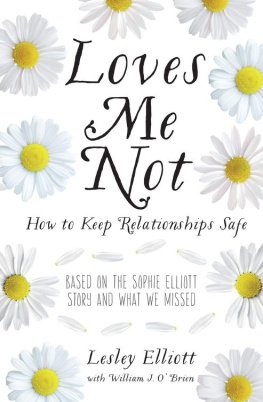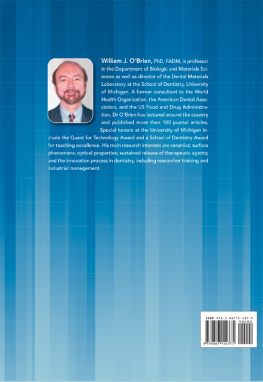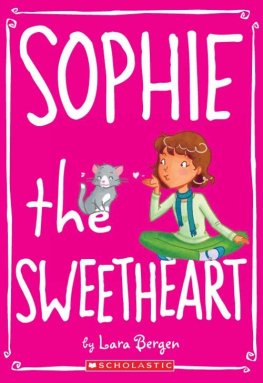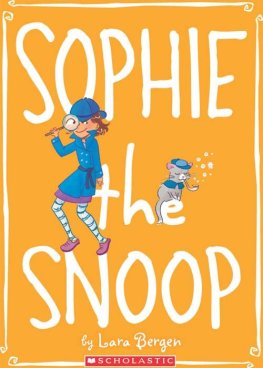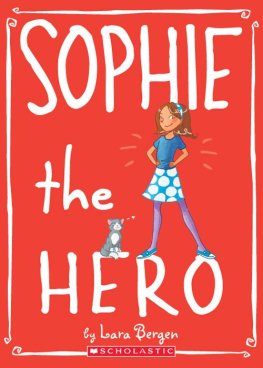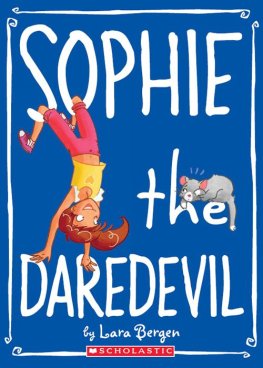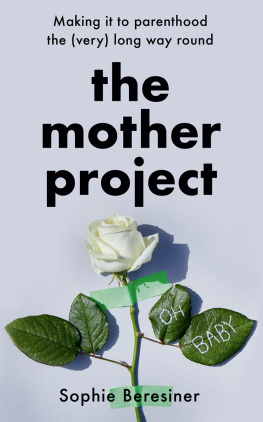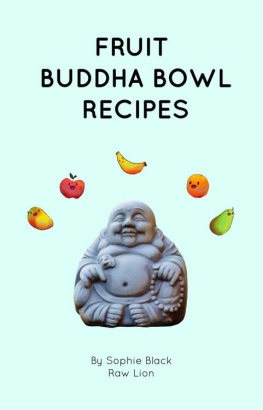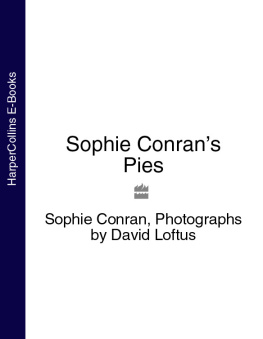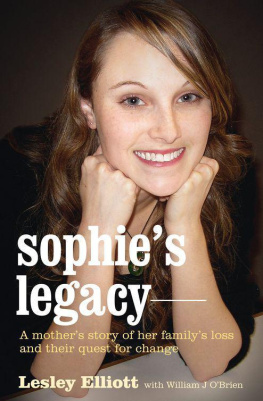If you think you are unsafe, then you probably are.
Lesley Elliott
In 2008, the horrific murder of Sophie Elliott by her former boyfriend and university tutor, Clayton Weatherston, shocked the nation. During the police investigation it became clear Sophies murderer was a typical abuser who had a track record of treating partners badly.
Sophies mother, Lesley Elliott, was astonished to find the characteristics typical of abusive relationships were right there in Sophies. Lesley quickly realised that if she and Sophie missed the signs, then so could many others. International research suggests education is the key, so Lesley set up the Sophie Elliott Foundation to raise awareness among all young people, their friends and families, of the signs of partner abuse.
The Loves-Me-Not programme was developed by the New Zealand Police in partnership with the Sophie Elliott Foundation and the Ministry of Social Development. Its primary aim is to help young people keep safe.
This book includes advice and suggestions on how to identify problems, how to deal with them and where to seek help. Also included is One for the Boys, a chapter written by well-known clinical psychologist and commentator, Nigel Latta.
This book is dedicated to the memory of my beloved daughter Sophie, along with Emily Longley, Christie Marceau, Helen Meads and the other 80 New Zealand women who have died at the hands of a partner or ex-partner in the six years since Sophie lost her life. RIP.
May their legacy encourage us to take a zero tolerance stand on violence, leading to a dramatic reduction in the deaths of women and children.
Contents
- CHAPTER 1
Who was Sophie Elliott? - CHAPTER 2
Power and Control - CHAPTER 3
Communication - CHAPTER 4
Threats and Entitlements - CHAPTER 5
Psychological Abuse - CHAPTER 6
Physical Abuse - CHAPTER 7
Sexual Abuse - CHAPTER 8
Navigating Love
- CHAPTER 9
Mirror, Mirror on the Wall - CHAPTER 10
One for the Boys
- CHAPTER 11
Friends
I agreed to write this book at the request of my publisher, Random House. Initially I thought it was beyond me as I am a nurse and mother not a trained counsellor. Sophie lived through a five-month-long relationship with a man who would eventually kill her. Because of the close relationship I had with Sophie I effectively lived the relationship also. But despite that, and despite all of the research I have looked at, I would like to make it perfectly clear I am not in any way trained for guidance counselling.
To ensure the information in this book is sound and therefore safe, I sought advice from numerous highly experienced professionals. I am indebted to the following people for their wisdom, expertise and guidance:
Nigel Latta, one of New Zealands best-known clinical psychologists and commentator on teenagers, for contributing the chapter One for the Boys.
Gayna McConnell, an experienced and respected school guidance counsellor, for her chapter, Navigating Love.
Although I wrote the sections Online Health Checks and Friends, along with other words of advice, I was only able to do so with the assistance of other guidance counsellors, including Jean Andrews, Heather Knox and Marcelle Nader-Turner. I very much appreciate their wise words.
To ensure this book would stand scrutiny I asked a range of people to review the manuscript independently. Thanks to Marie Norton and Jenny Corlet, school guidance counsellors who have experience as facilitators of the Year 12 workshop Loves-Me-Not. Also Rowan Milburn, assistant principal of a large co-ed school, who led one of the trials of Loves-Me-Not.
For a totally independent set of eyes the manuscript was sent to Graham Gibbs, a former police education officer experienced in programmes such as Keeping Ourselves Safe.
The expertise of all of these people has enabled me to write this book with confidence and I so very much appreciate your help.
I also want to thank Dr Alison Towns for allowing me to use interviews from her research into the Cultures of Cool.
The support of Eric and Sue Faesenkloet enabled me to set the wheels in motion to produce this book and the Zonta Organisation made it possible for the book to be printed and distributed to students. I am indebted to these people. A further acknowledgement to Zonta is included on page .
Thanks must also go to the publishers at Random House for their ongoing support of not only me but also the Sophie Elliott Foundation. To Barbara Larson and the team, a big thank you.
Finally I want to thank my co-author, Bill (William J) OBrien, for his unstinting support of me, the Sophie Elliott Foundation and the anti-violence cause. Bills inspiration comes from his two young granddaughters who, in a decade from now, will in all likelihood be heading into relationships of their own.
Lesley Elliott, 2014
In 2008 my daughter Sophie, then aged 22, lost her life at the hands of an ex-partner. During the police investigation it became clear that Sophies murderer was a typical abuser who had a track record of treating partners badly. Regrettably, none of his partners ever reported his behaviour to the police.
I began to research the phenomenon of domestic and partner abuse and was astonished to find the very characteristics that are evident in abusive relationships were right there in Sophies. We had simply, through ignorance and navety, missed them. I concluded that if both Sophie and I could miss these signs then so too could many other people.
It became apparent that education was the key to recognising the signs of domestic and partner abuse, and therefore preventing it. It was for this reason that I set up the Sophie Elliott Foundation, to raise awareness among all young women and their friends and families to the signs of partner abuse. One of the aims of the foundation was to develop a national secondary school programme that would teach young people about the warning signs and risk factors for abuse, and to equip them with the skills to recognise and get themselves out of unhealthy relationships. It so happened that the New Zealand Police and members of the Ministry of Social Developments Its not OK campaign had a similar vision. Together we formed a partnership and developed the Year 12 workshop Loves-Me-Not.
The idea is for this book to be kept as a reference point. If, at some time in the near or distant future, someone who has taken part in the Loves-Me-Not programme becomes concerned at how their or a friends relationship is going, they can access this book and refresh their memories as to what should constitute a healthy relationship. This book includes advice and suggestions on how to identify problems, how to deal with them, and where to seek help.
There are a couple of points I need to make, and one is aimed at males. In my situation the psychological then physical violence on Sophie was perpetrated by a man. Of course my story must reflect that. However, this in no way implies that I am anti-male or that what I write is man bashing its not. Even though 85 per cent of family violence incidents reported to police are perpetrated by males, I acknowledge that abuse goes both ways, as reinforced by Nigel Latta in his chapter, One for the Boys. But because of size and strength women tend to come off worse. There is no doubt that partner or relationship violence (or whatever name you want to give it) is not okay.
The other point is that this story is about the signs of abuse in a relationship that Sophie and I missed. Im not suggesting that all or even the majority of relationships are abusive. Sophie also had some lovely experiences with young men who treated her well, as she did them.

